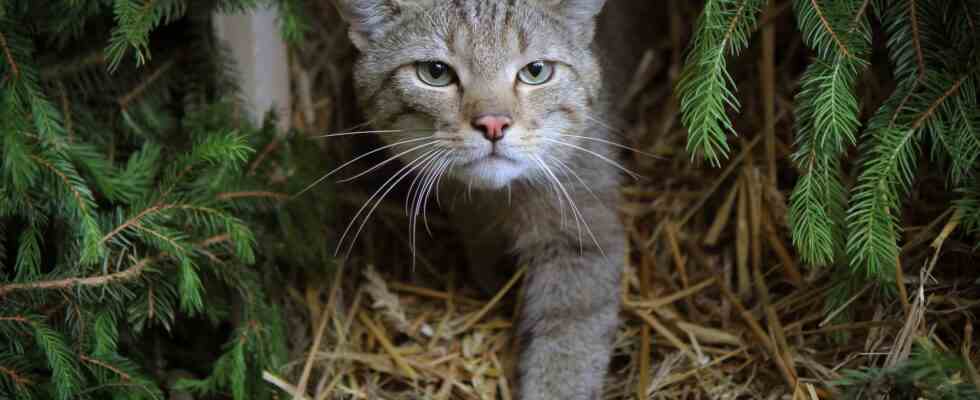Status: 07.03.2023 1:16 p.m
The European wildcat should get better living conditions in Germany. The Ministry of the Environment is funding a nature conservation project with millions. In large parts of the country, the animals are missing across the board.
Conservationists want to give the European wild cat more habitat in Germany. “Tomorrow’s wild cat forests” are to be created in ten federal states, the Bund für Umwelt und Naturschutz Deutschland (BUND) announced. Wild cats (Felis silvestris) are still rare in Germany.
“The diverse habitats of the European wildcat are refuges for biodiversity. Where the cat likes it, other endangered animals such as the Bechstein’s bat, fire salamander and middle woodpecker also feel at home,” said the deputy chairwoman, Verena Graichen.
European wild cats are not feral domestic cats. According to the Federal Ministry for the Environment, the wild cat needs large, contiguous forest areas because it can travel over a hundred kilometers in search of food or mates. She sleeps or raises her young in crevices in rocks or tree cavities. In Germany, it often lives in large forest areas in low mountain ranges – the total population is estimated at 5000 to 7000 animals. By way of comparison, there are more than 15 million in domestic cats.
Project plans upgrading of forests
According to the Federal Agency for Nature Conservation, wild cats are missing across the board in large parts of northern and eastern Germany. Specifically, in the BUND project, forest edges are being upgraded and adjacent open areas are being developed to be suitable for wild cats. In managed forests, among other things, the proportion of dead wood should also be increased. The project runs until October 2028.
The measures are funded by the Federal Environment Ministry with around 6.9 million euros. “Healthy forests are species-rich habitats and natural climate protectors – in view of the acute double crisis of species extinction and climate crisis, maintaining and developing them is more important than ever,” said Federal Environment Minister Steffi Lemke (Greens). The preservation of biological diversity is a task for everyone, from the federal government to the states and districts to the local communities.

